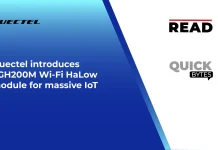SIA has long supported export control policy that safeguards national security without unduly harming the commercial innovation that is essential to America’s economy, national security, and technological leadership. Consistent with these longstanding efforts, SIA recently submitted detailed public comments regarding significant new semiconductor export control rules released on Oct. 7 by the Bureau of Industry and Security
U.S. semiconductor companies are dependent on a “virtuous cycle” of innovation that includes large investments into research and development and access to global markets. Historically, U.S. semiconductor companies have consistently invested about one-fifth of their revenues in research and development, among the highest shares of any industry. As such, it is important to ensure export controls are aligned with the “small yard, high fence” paradigm.
While SIA and its member companies fully understand targeted export controls are necessary to safeguard national security, the Oct. 7 export control rules are unprecedented in scope and detail, and create new challenges for the global semiconductor ecosystem. The SIA comments emphasize the following recommendations regarding the Oct. 7 export control rules:
- BIS should consider the unnecessarily harmful impacts of regulatory complexity, uncertainty, and burden in this action and future rules, which can lead foreign companies to design out U.S.-origin or branded content to “de-risk” their supply chains. Over-control risks harming the U.S. industrial base, particularly where there is foreign availability of competitive technology, software, components, and equipment.
- BIS should return to regular rulemaking order by publishing significant new actions as proposed rules first and seek input from relevant technical advisory committees and industry. This could prevent the unintended consequences experienced by many companies due to the complex technological and supply chain issues affected by these controls.
- BIS should issue a temporary general license for the four multinational semiconductor fabs operating in China. This action would significantly reduce uncertainty and enable more effective business planning.
SOURCE: SIA






